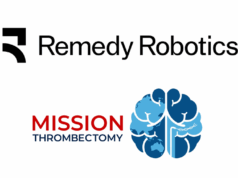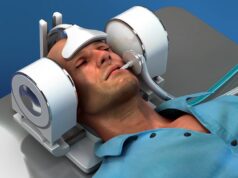 Royal Philips—in collaboration with the World Bank and Ukraine’s Ministry of Health (MOH)—has announced a nationwide initiative to modernise stroke and cardiovascular care in Ukraine.
Royal Philips—in collaboration with the World Bank and Ukraine’s Ministry of Health (MOH)—has announced a nationwide initiative to modernise stroke and cardiovascular care in Ukraine.
A company press release notes that the demand for stroke care in Ukraine is nearly doubling, exacerbated by war damage and displaced populations lacking access to timely care. This programme—which, according to Philips, is already “well on its way”—aims to address these challenges by creating an advanced network of locations for the diagnosis and treatment of stroke.
The joint initiative delivers advanced image-guided therapy systems optimised for acute stroke treatment to key regions of Ukraine, including Dnipro, Sumy, Kharkiv, Lviv, Zaporizhzha and Odesa.
Philips is deploying 25 of its Azurion interventional suites to support minimally invasive stroke treatments and complex neurovascular procedures, including thrombectomies. The systems integrate software tools and technologies to accelerate procedures and enhance care coordination. Together, these innovations streamline care pathways, reduce treatment delays and improve patient outcomes, according to Philips.
The company is working with its partner, AFS Medizintechnik, to roll out systems across the country—and, so far, 19 systems have been installed and are already helping Ukrainian physicians provide optimised care to their stroke patients, Philips further claims.
“Every year, approximately 140,000 Ukrainians experience a stroke, with many facing disability or death due to delayed treatment,” said Carla Goulart Peron, chief medical officer at Philips. “This collaboration ensures patients in underserved regions gain access to life-saving technologies.”
“This programme is saving lives, reducing disability, and changing the futures of stroke patients,” commented Dmytro Lebedynets (Feofaniya Clinical Hospital, Kyiv, Ukraine), consultant on stroke to the World Bank and the MOH of Ukraine. “With these advanced tools, we can deliver timely and precise life-saving care, even in emergencies. It’s a gamechanger for our patients. Now, all the regions of our country will be able to provide the full spectrum of care to stroke patients.”
Philips’ recent release states that this programme also emphasises comprehensive clinical training to ensure the new stroke network is utilised to its full potential, with physicians set to undergo hands-on education and training in Poland as part of the initiative. This approach guarantees the latest expertise in stroke treatment, enabling consistent high-quality care delivery across Ukraine, the release adds.









